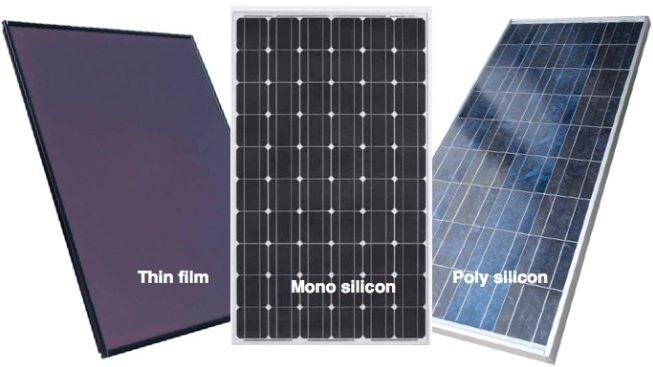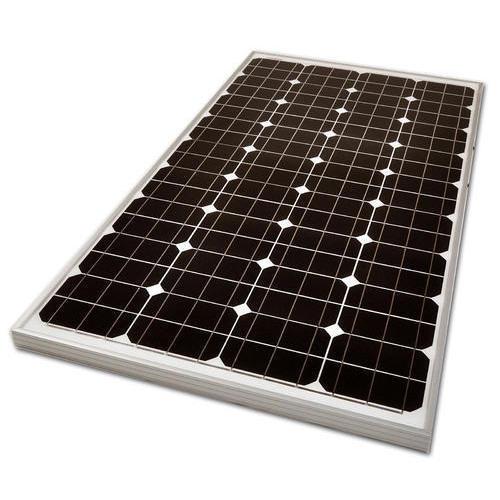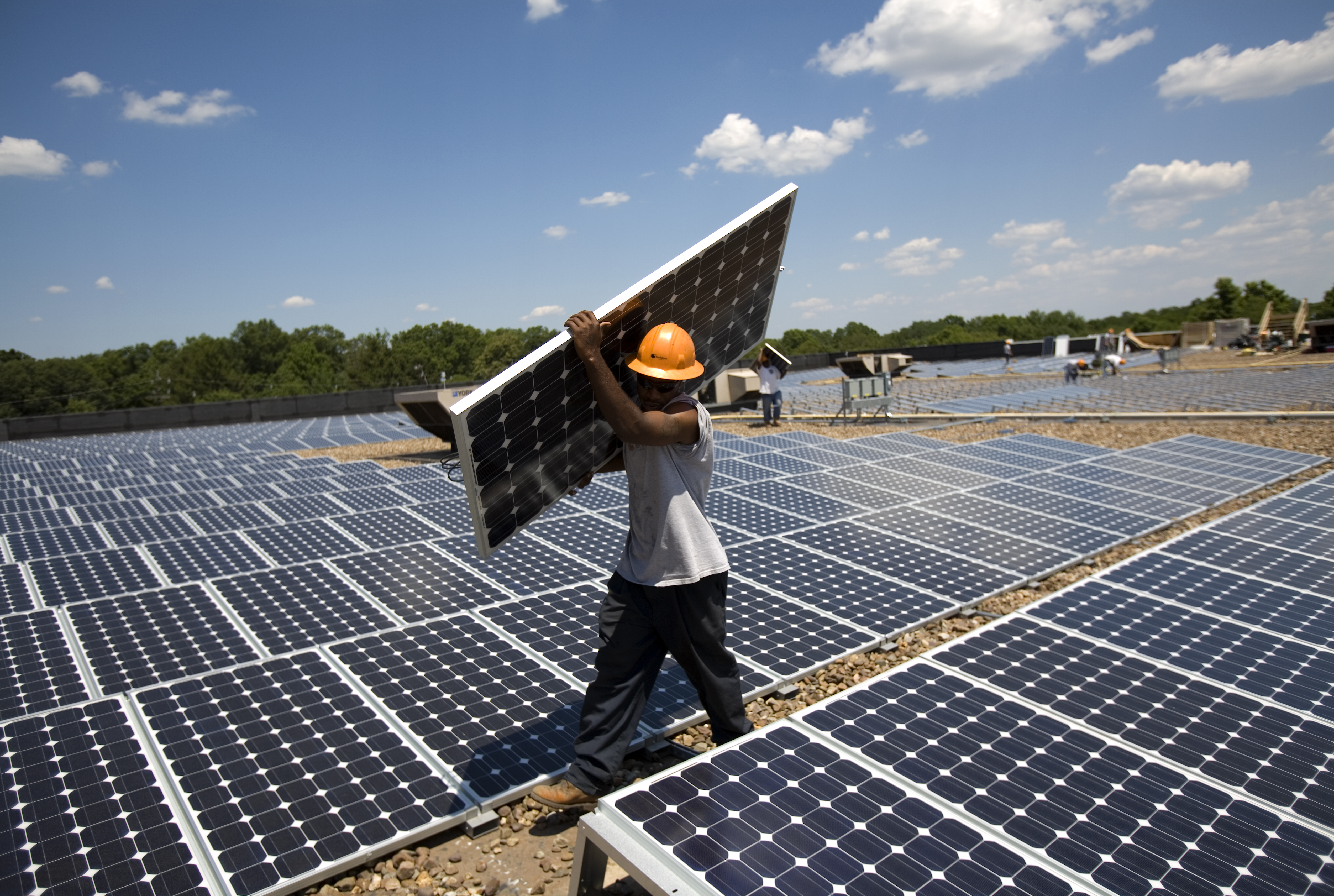- October 12, 2019
- Posted by: SouTech Team
- Category: Alternative Energy- Solar and Inverter, Blog, Project Management

In this article you will get to understand one of the most important component of an off grid solar and inverter installation set up(there are four major important components which include pv module-panels, charge controllers, inverters and batteries)
Most times the question is asked, what is our goal? why do we need to install solar panels in our homes and offices or industrial areas? few things comes to mind which include
- Reduce cost of electricity bills on the long run
- reduce carbon emission footprint(odorless, noiseless and emission free energy generation)
The major types of solar panels module used in Africa, especially in Nigeria are the Monocrystalline Modules and Polycrystalline Modules amongst others. But here comes a very big challenge, which of the two major types of panels do we choose for our installation?
Many issues have been raised on which of these two modules is better, but who should you listen to in this regard?
There is something that looks like a hard choice in deciding which of the photovoltaic modules is most suitable for a project, prospective buyers are faced with countless choices regarding quality, performance, and price, durability and of course efficiency. Just like our every other day shopping needs we would want to get the best deals, often sacrificing performance for a competitive price. While trying to keep your costs low is understandable, sacrificing efficiency, performance over price can greatly affect and impact your project severely. That’s why we here at SOUTECH VENTURES have created this small guide to help you navigate the sea of information related to buying solar panels for generating energy. In this article, you will learn everything you need to know about the differences between monocrystalline modules and polycrystalline modules.
What are Monocrystalline Solar Panels Modules?
This is the technology that started the photovoltaic revolution. Originated in the 1950s, monocrystalline solar panels are the oldest and most developed system to date. As the name suggests, they are made from a single crystal of pure silicon. Manufacturers use the Czochralski method to slowly pull a single silicon crystal seed out of melted monocrystalline silicon and form an ingot. A crystal seed is a small piece of silicone which is used as a base for the molten molecules. By providing the right infrastructure, the molten molecules can connect to form an ingot. While the seed is being drawn up, the temperature is lowered gradually to help form a cylindrical shape.
Monocrystalline modules can be recognized by their uniform coloring and look, which indicate the high purity of silicon.
 What are Polycrystalline Solar Panels Modules?
What are Polycrystalline Solar Panels Modules?
Polycrystalline solar panels are made up of multiple crystals. Instead of going through the slow and very expensive process of creating a single crystal, manufacturers simply put a crystal seed in a cast of molten silicon and allow it to cool. Due to this casting method, the crystal surrounding the seed isn’t uniform and grows into multiple small crystals.
What Is the Difference Between Monocrystalline and Polycrystalline Solar Panels?
The differences between monocrystalline modules and polycrystalline modules derive from the process they are created. Mono solar panels are made from a single crystal seed, either found in nature or created in a laboratory. As a result, they have a more uniform and smoother appearance than polycrystalline modules. Poly solar panels, on the other hand, are created from blocks of crystals which give the module a metal-flake effect.
Advantages and Disadvantages of Monocrystalline Solar Panels Modules
Advantages:
- Mono solar panels have the highest efficiency rate (usually around 15%-20%);
- Monocrystalline modules are space-efficient. Because these modules deliver the highest power output, they require the least amount of space comparing to other solar panels;
- Mono solar panels have a long lifespan – most manufacturers offer a 25-year warranty on their mono solar panels;
- They perform better than other types of solar modules in low-light conditions.
Disadvantages:
- Monocrystalline modules are the most expensive;
- If they are covered with dirt, the entire system may be affected;
Advantages and Disadvantages of Polycrystalline Solar Panels Modules
Advantages:
- The process used to manufacture poly solar panels is simpler and, thus, less pricey.
- They usually have a lower heat tolerance than monocrystalline modules.
Disadvantages:
- Because the silicon purity is lower than mono modules, poly solar panels are less efficient than their mono counterparts. Their efficiency is usually rated at around 13%-16%.
- Not only that they are less energy efficient, but they have a low space efficacy as well. You need to cover a larger surface to get the same power as you would with monocrystalline modules.
Which One Should I Choose?
The larger and purer the crystal is, the more efficient the solar cells will be. As a result, monocrystalline modules are around 10% to 15% more energy efficient than their poly counterparts.
Polycrystalline modules, on the other hand, were often thought to be inferior to mono solar panels because they are less efficient. But, here’s the catch: because of the cheaper process, it costs around 20% less to create solar modules with monocrystalline structures. More than that, poly modules have been improving their performance constantly in recent years, pushing the standard to greater limits.
So, which is better?
The answer depends on your project’s specification. Poly modules, for instance, are ideal for projects with large roof or ground space. They are also great for consumers on a tight budget who are looking for ways to keep installation costs to a minimum.
Mono solar panels, on the other hand, are perfect for small roofs or space-constrained properties. Since monocrystalline modules are very efficient, you will get more power onto the same surface area. Moreover, these panel types have a lower temperature coefficient than poly modules.
Monocrystalline modules are more expensive than poly modules, but they take up less space. For instance, if you have one mono and one poly solar panel, both rated at 240-watt, they would generate the same energy, but the monocrystalline solar module would take up less space.
If cost is your major concern and you want to pay as little as possible for installation, then you should opt for poly solar panels. You won’t get the same efficiency as with monocrystalline modules, but you’ll reduce the initial costs dramatically.
Conclusion
In Conclusion, it is better to know that any of these two panels have their pros and cons which is why we at SOUTECH VENTURES encourage our clients to contact us whenever they have issues regarding photovoltaic modules. As aspiring leaders in PV energy solutions in Africa and especially in Nigeria, we are focused on providing our customers with the best products to meet their specific needs.
If you are ready to take a step towards going solar, contact us and we will guide you through the process.
You can also enroll for a comprehensive solar and inverter training course with field work option in SOUTECH. Click on below link





